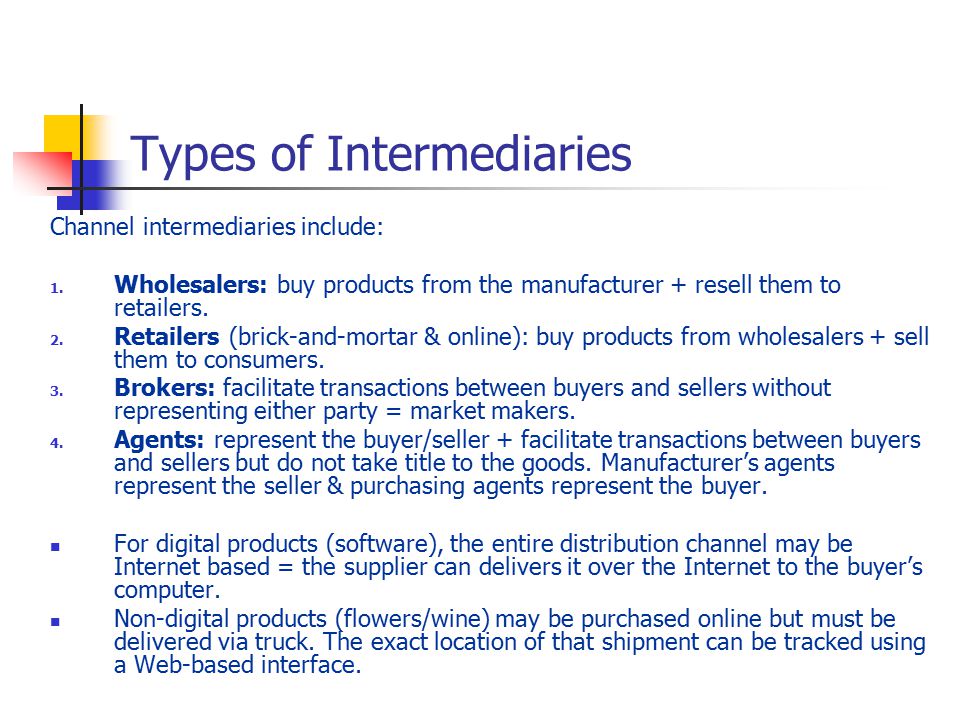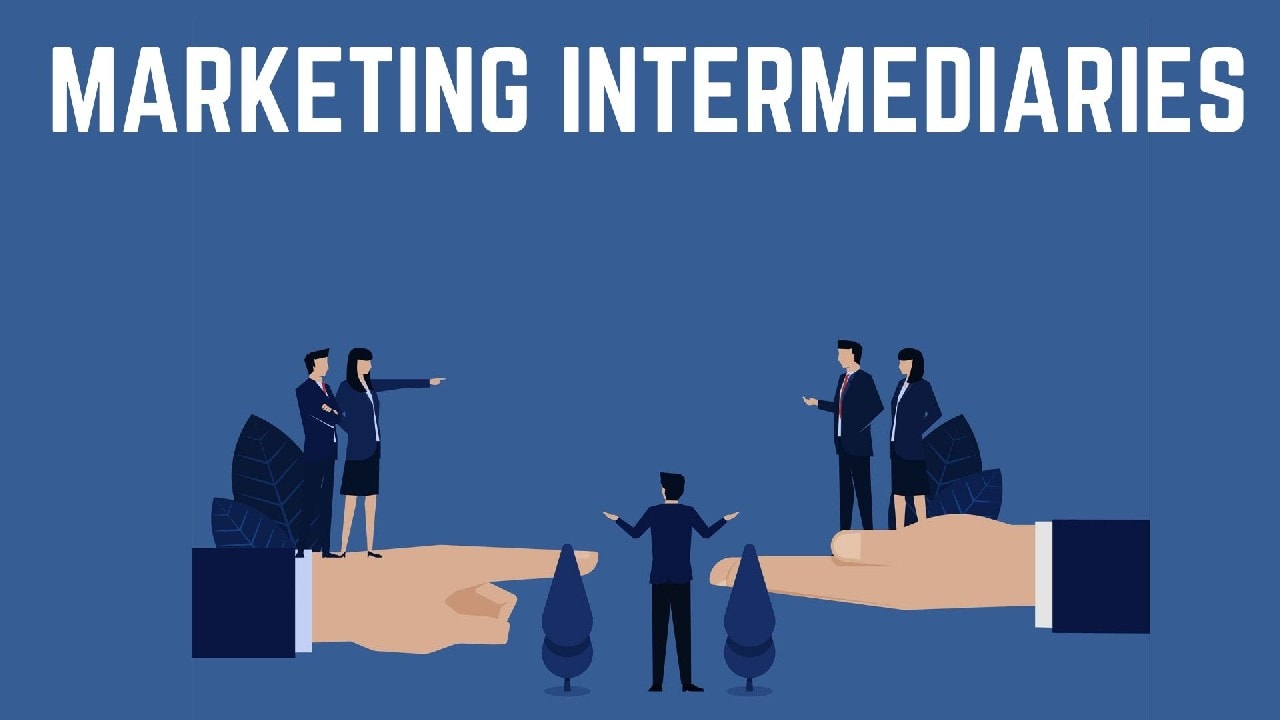Wholesalers are the intermediaries who buy products from the manufacturer in a large volume and then resell them to other small businesses usually retailers. C products would likely be more expensive due to the use of less efficient channel members.

Learn About Distribution Channels Chegg Com
Wholesalers do not work with small numbers of product.

. Their operations are focused on specific regions. They buy in bulk and store the products in their own warehouses and storage places until it is time to resell them. Retailers can be small or large for-profit companies.
Without wholesalers and other intermediaries products would likely be more expensive due to the use of less efficient channel members. These intermediaries such as middlemen wholesalers retailers agents and brokers distributors or financial. Cassie and Julian both are buying new iPhones this week.
Rather they sell the products to other intermediaries such as retailers for a higher price than they paid. Wholesalers rarely sell to the final user. C products would likely be more expensive due to the use of less efficient channel members.
There are four commonly known types of intermediaries namely marketing agents wholesalers distributors and retailers. Just like wholesalers distributors buy products from the manufacturer store them and sell it off to retailers and other intermediaries. Intermediaries such as brokers manufacturers representatives sales agents are looking for customers negotiating on behalf of the manufacturer to negotiate terms of sale.
Both of these intermediaries sell products and services on a commission or percentage basis. B products would be cheaper because the functions of intermediaries would be eliminated. They are legally appointed to impart.
B products would be cheaper because the functions of intermediaries would be eliminated. The four types of traditional intermediaries are as follows. Intermediaries such as wholesalers retailers spend money to buy goods and then resell for profit.
They usually act as marketers or representatives on behalf of the sellers and dont actually own the. Distributors often sell to wholesalers and retailers creating minimal contact with the final buyers. Marketing agents sometimes also known as brokers are private individuals or firms that facilitate the selling of a product.
Without wholesalers and other intermediaries a most products would be much less expensive because fewer companies would be handling the product. Without wholesalers and other intermediaries a most products would be much less expensive because fewer companies would be handling the product. In other words intermediaries are third-party agents or individuals between parties for a specific deal.
Some wholesalers have multiple products to be sold to different retailers while others specialize in only a single product or a category. Many producers do not sell products or services directly to consumers and instead use marketing intermediaries to execute an assortment of necessary functions to get the product to the final user. Retailers purchase products from other channel intermediaries such as wholesalers and distributors to sell directly to consumers.
Distributors are intermediaries that trade stockpiles and provide technical support to retailers and wholesalers.

Marketing Chapter 12 Flashcards Quizlet

Chapter 12 Distribution Ppt Download

The Four Types Of Marketing Intermediaries

Marketing Intermediaries Meaning Different Types Explained With Examples

The Four Types Of Marketing Intermediaries

Lecture 22 Channel Conflict And Solutions 1 Why Use Channel Intermediaries Wholesaler Or Retailer With Intermediaries Milk P1bread P2shampoop3soap P4 Ppt Download

Distribution Channels Boundless Business

Marketing Strategy Chpt 10 Marketing Channels And Supply Chain Flashcards Quizlet
0 comments
Post a Comment